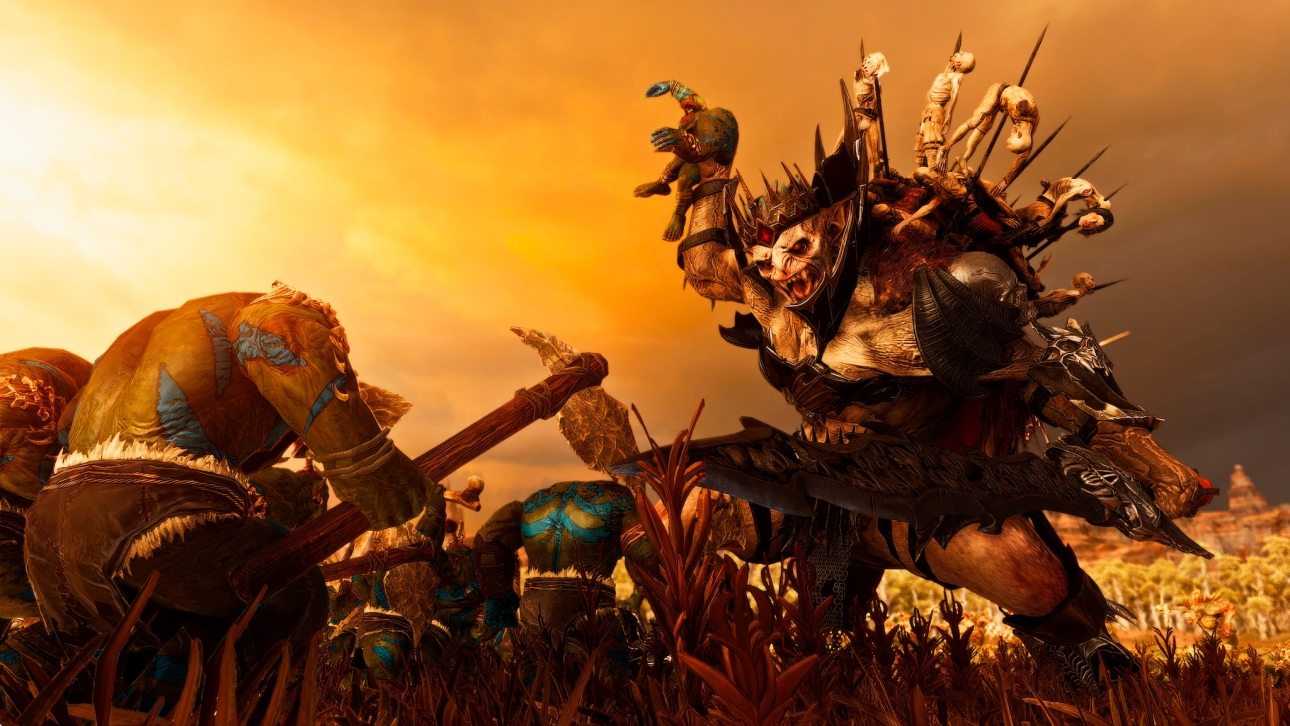The Sims 4 vs. Total Warhammer: predatory vs perpetual pricing
I’ve spent a lot of time thinking about predatory pricing in games. My feelings on the matter are complicated, and are made up of contradictions and biases. My initial revulsion was directed at games like The Sims 4. Look - the idea of a game where the full experience costs over $1,000 feels like a scam, a transparent and cynical attempt to nickel-and-dime players to death. Electronic Arts being the publisher doesn’t really help add the credibility to the business model. Dear EA, your golden poo award was well deserved.
And look, I grew up with the first Sims game. I’m all for playing within a digital dollhouse.
But… I’m starting to see that this view is uncharitable, and maybe even a bit naive. Look at it this way: that price tag represents over a decade of content. For a discerning fan who loves the minutiae of building a digital life, those many expansion packs, game packs, and kits might not be an obscene cost, but a steady investment in a hobby. I’ll explain.
 The Sims 4: you’re looking to pay well over a thousand dollars to unlock all the content.
The Sims 4: you’re looking to pay well over a thousand dollars to unlock all the content.
There’s another game that follows a slow, steady release of paid content for an evolving game, which I enthusiastically embrace - and I didn’t really catch the dichotomy until I started thinking about this article.
Meet Total War: Warhammer series. It’s a turn-based/real-time strategy game hybrid that drops you into the grim-dark fantasy universe of Warhammer. Think a more brutal, less moral Tolkien, with a better sense of humor. You’ve got larger-than-life characters and memorable (albeit somewhat generic) factions with fun twists: like the spiteful dwarfs, who once declared a war over mistakenly being shorted two coins. You build up your provinces, make attempts at diplomacy, declare wars, and command your troops in battle. It’s glorious, over-the-top fun. It’s right up my alley.
The full trilogy, with all its DLC, costs a pretty penny: I think you’re looking at over $400 for the full experience. But, like The Sims, that cost has been spread out over nearly a decade of releases. The difference for me is in how that content feels. It’s not just more stuff; it’s a living world that’s been constantly reworked and improved by a community and a passionate developer team.
Major patches haven’t just added new units; they’ve completely overhauled entire factions, revitalizing old campaigns. We’ve seen major reworks to the Beastmen and Greenskins, turning them from one-dimensional hordes into rich, engaging experiences. We’ve seen significant balance changes, new legendary lords, and quality-of-life improvements that make the game of today unrecognizable from its original release. And this isn’t a one-way street, either. These improvements are often driven by an engaged community, with developers (sometimes) actively listening to player feedback and using it to refine and enrich the game world. It makes every purchase feel like a contribution to a shared, evolving project.
I’ve come to believe the real difference between these two pricing models for me isn’t about the raw cost or the spread-out purchases. The difference is the feeling of what you’re paying for.
When playing The Sims 4, my experience always felt like I was nudged to buy back a part of the game that had been purposefully stripped away. The constant reminders of missing content felt less like an invitation to a larger world and more like a guilt trip. “If you pay just five more dollars, you could be enjoying the full experience!” I’m okay, thanks.
 Total War: Warhammer III: I’ll gladly keep on paying for awesome, meaningful content.
Total War: Warhammer III: I’ll gladly keep on paying for awesome, meaningful content.
With Total War: Warhammer, a purchase feels like an expansion of an already great thing. It’s an investment in a developer team that I see working to make the game better, richer, and more complex (Creative Assembly had its fair share of missteps, but their heart’s in the right place). It’s a payment for more of the epic, world-shattering stories I love, not for something I feel I should have had from the start.
This brings me to the “in-between” games - live service shooters like Destiny. Here, the crux of my dislike is that the constant stream of new content packs and events can feel more like bloat than well thought out additions. While I can appreciate the need to keep things fresh, it often feels disconnected from the overall experience. For many of the live service games, new player experience isn’t particularly great as you get bombarded by all the mismatched additions over the years.
The DLCs for Total Warhammer or something like Stellaris, on the other hand, feel like coherent, lore-friendly additions. Even something like the Chaos Dwarfs introduced in a Total Warhammer III DLC, which is extremely complex and clearly targeted at expert players, feels like it belongs in the world. It’s a purposeful, integrated expansion of the story and the world, not just a new season pass or event to keep people busy.
In the end, I’m okay with paying a lot for my gaming experience, as long as it’s for an experience I feel truly justifies its cost. The line between “predatory” and “perpetual” is a fine one, and that line is drawn not by a publisher’s business model, but player’s personal satisfaction.
Comments
Respond directly on Bluesky (threads shown below) or Medium (view comments there).
 Rooslawn's Unmapped Worlds
Rooslawn's Unmapped Worlds